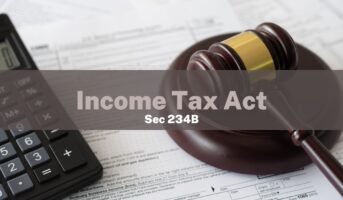Advance tax, also known as “pay-as-you-earn” tax, is a system of staggered payments to the government by taxpayers over the fiscal year. It is a way for individuals and businesses to fulfil their tax obligations in instalments rather than in a lump sum at the end of the financial year. This article delves into the intricacies of advance tax payments, covering their importance, calculation methods, due dates and implications for both individuals and businesses.
See also: What is professional tax in India?
What is advance tax?
Advance tax stands as a proactive and strategic method for taxpayers to fulfil their income tax obligations before the conclusion of the fiscal year. Rather than waiting until the year-end to settle the entire tax liability, taxpayers are required to make prepayments at specified intervals. This approach ensures a more even distribution of the tax burden, promoting financial discipline and aiding in effective cash flow management.
What are the applicability criteria of advance tax?
Advance tax applies to individuals and entities whose anticipated annual tax liability surpasses a predetermined threshold. The rationale behind this requirement is to incorporate those with significant income streams or diverse revenue sources. Such taxpayers are expected to make incremental payments at specific intervals, reflecting a percentage of their estimated total tax liability for the year.
What is the significance of advance tax?
Cash flow management
Advance tax facilitates better cash flow management by allowing taxpayers to spread their tax payments across the fiscal year. This prevents a concentrated financial strain at the end of the year.
Timely revenue for the government
From the government’s perspective, advance tax ensures a consistent inflow of revenue throughout the year. This steady stream aids in budget planning and execution of public projects.
Avoidance of last-minute rush
By requiring taxpayers to make periodic payments, advance tax minimises the likelihood of a last-minute rush to fulfil tax obligations, reducing administrative challenges for both taxpayers and tax authorities.
How to calculate advance tax?
Estimating annual income
Taxpayers commence by estimating their total annual income, considering all relevant sources, deductions and exemptions.
Applying tax rates
Applying the applicable income tax rates to the estimated income provides an initial assessment of the tax liability.
Deductions and exemptions
Deductions and exemptions permissible under tax laws are applied to arrive at the final taxable income.
Dividing into instalments
The calculated tax liability is divided into four instalments, each corresponding to specific due dates throughout the fiscal year.
What are the due dates for advance tax payments?
15th June
The first instalment, equivalent to 15% of the estimated tax liability, is due by June 15th.
15th September
By September 15th, taxpayers are required to pay 45% of the estimated tax liability as the second instalment.
15th December
The third instalment, amounting to 75% of the estimated tax liability, is due by December 15th.
15th March
The final instalment, covering the remaining 25%, will be paid by March 15th.
What are the implications of non-compliance?
Penalties and interest
Failure to adhere to advance tax obligations can result in penalties and interest charges, imposing additional financial burdens.
Legal scrutiny
Non-compliance may trigger legal scrutiny, leading to potential investigations and audits by tax authorities.
Financial consequences
Neglecting advance tax payments may result in a lump-sum payment at the year-end, causing financial stress and potential liquidity issues.
FAQs
What is advance tax, and who is required to pay it?
Advance tax is a system where taxpayers make prepayments of their income tax liability at specified intervals throughout the fiscal year. It is applicable to individuals and businesses whose estimated tax liability exceeds a certain threshold.
Why is advance tax important?
Advance tax is crucial for effective cash flow management, avoiding last-minute financial stress, and ensuring a steady revenue stream for the government.
How is advance tax calculated?
Taxpayers estimate their annual income, apply the relevant tax rates, consider deductions and exemptions, and then divide the resulting tax liability into four instalments due at specified intervals.
What happens if I don't pay advance tax?
Non-compliance may lead to penalties, interest charges, legal scrutiny, and financial stress due to a lump-sum payment at the year-end.
Can I adjust my advance tax payments if my income changes during the year?
Yes, if there is a significant change in income, you can revise your advance tax payments in subsequent instalments to reflect the updated estimates.
Is advance tax applicable to salaried individuals?
Yes, if a salaried individual has additional sources of income and their overall tax liability exceeds the threshold, they are required to pay advance tax.
How can I avoid penalties for non-compliance with advance tax?
Ensuring timely and accurate advance tax payments is the best way to avoid penalties. Regularly reassessing income estimates and staying informed about tax regulations can help prevent non-compliance.
| Got any questions or point of view on our article? We would love to hear from you. Write to our Editor-in-Chief Jhumur Ghosh at [email protected] |

Shimon Oberoi, an economics graduate from Rajdhani College, University of Delhi, strives to simplify the real estate world through her compelling and well-researched content. She has experience in domains like entertainment and economic concepts, among others. When not creating content, she enjoys watching movies, listening to music, and reading fictional books.











